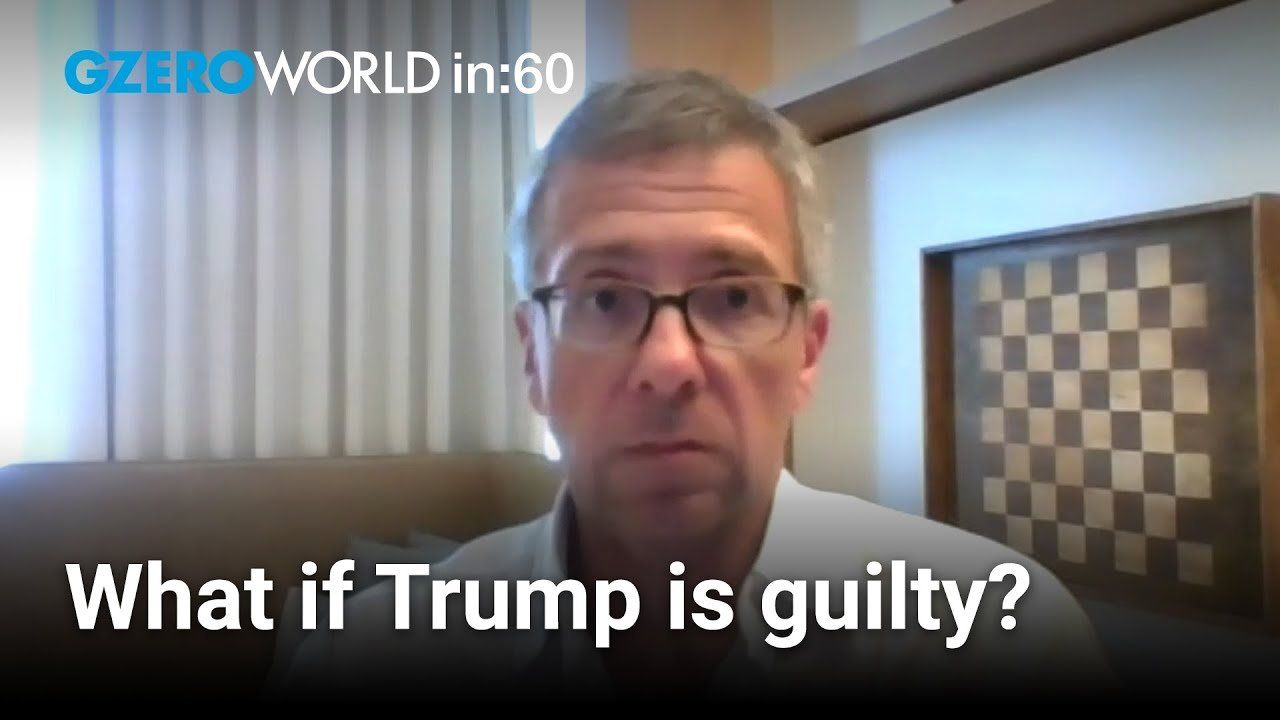
Ian Bremmer shares his insights on global politics this week on World In :60.
How would a conviction in his hush money trial impact Trump in the 2024 election?
At least a little bit at the margins. And certainly that's the reason why Biden and the White House campaign are now working to pay attention to it, to get people down there in front of the courthouse where the media is located and talk about Trump as a criminal. Of course, could backfire on them, especially if it's a hung jury. But if he's convicted, while Republicans aren't going anywhere, there are a lot of independents that have consistently said that they are less willing to vote for Trump. Of course, this conviction comes in the lowest stake of the cases that are being presently pursued against the former president. This isn't the case on the insurrection and this isn't the case even on the classified documents being obscured, mishandled. And so as a consequence, I suspect at the end of the day, if you get a conviction, it's not going to matter much. But in a very, very close election, which is all about swing states and turnouts, it could hurt with getting independents to turn out for Trump.
Is Iran's emergency presidential election really about who will eventually succeed as supreme leader?
A little bit. This is my week of “a little bit” answers, in the sense that it's going to reveal who the Iranian supreme leader wants, what kind of a character he wants as president, an important position in terms of consensus policy execution going forward, how much of a hardliner, how close to the IRGC, how close to the Basij? In other words, you know, just how much are you going to see someone who has the ability to play to the audience, the masses a little bit, is a bit of a technocrat, or is someone that is truly going to be a theocratic dictator on every issue with very little wavering, to the extent that it's the latter of the next Supreme leader is likely to follow those steps. So that is certainly worth watching.
How will Mexico's presidential election reshape its relations with the United States?
Almost not at all. Claudia Sheinbaum, overwhelmingly likely to win. Not likely to get a supermajority, which means that López Obrador is going to have a hard time seriously changing the Constitution, undermining checks and balances in the country before he leaves. But he's still going to have an awful lot of influence, slightly more technocratic government, more focused on renewables and transition energy, but overwhelmingly focused on making sure that the relationship with the US is better. The one thing that I would say is important about Sheinbaum is, López Obrador traveled almost nowhere, didn't go to the G20 meetings, didn't go to UNGA, United Nations high level week, didn't go to the COP summits, just didn't travel, traveled around Mexico. Sheinbaum will go everywhere and will travel to the United States a lot, will travel to Canada, too. And I think that ultimately matters. So Mexico is going to have a higher priority at the presidential level on foreign policy, and especially in a relationship that can be tricky if Trump wins, for example, come next January. That's going to be at the margins, useful for the Mexicans.
- Optimism about Mexico's political and economic future ›
- Why Mexico is a key issue in the 2024 US election ›
- This man will be Iran’s next president. Who is he? ›
- Graphic Truth: How will Trump's hush money trial end? ›
- What the Trump trial circus is missing ›
- Trump has been found guilty. Will voters care? - GZERO Media ›
- Ian Bremmer on Trump's guilty verdict - GZERO Media ›
- GOP's response to Trump verdict: An "ominous sign" for the future? - GZERO Media ›